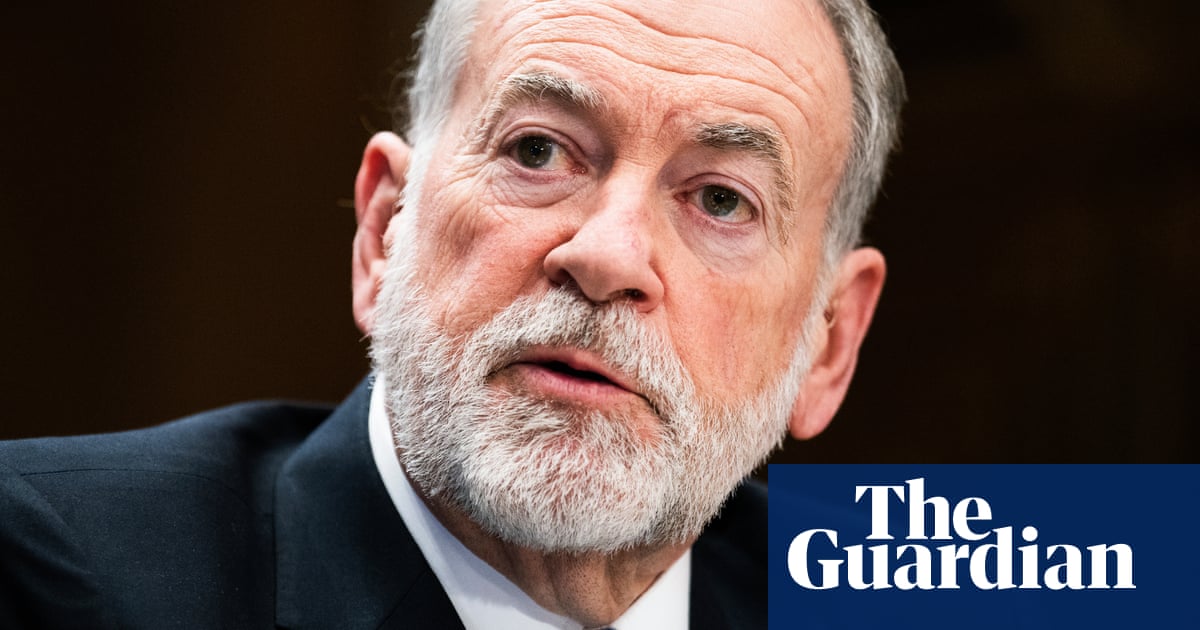Mike Huckabee, the US ambassador toIsrael, has said that the US is no longer pursuing the goal of an independent Palestinian state, marking what analysts describe as the most explicit abandonment yet of a cornerstone of USMiddle Eastdiplomacy.
Askedduring an interview with Bloomberg Newsif a Palestinian state remains a goal of US policy, he replied: “I don’t think so.”
The former Arkansas governor chosen byDonald Trumpas his envoy to Israel went further by suggesting that any future Palestinian entity could be carved out of “a Muslim country” rather than requiring Israel to cede territory.
“Unless there are some significant things that happen that change the culture, there’s no room for it,” Huckabee was quoted as saying. Those probably won’t happen “in our lifetime”, he told the news agency.
When pressed on Palestinian aspirations in theWest Bank, where 3 million Palestinians live under Israeli occupation, Huckabee employed Israeli government terminology, asking: “Does it have to be in Judea and Samaria?”
Trump, in his first term, was relatively tepid in his approach to a two-state solution, a longtime pillar of US Middle East policy, and he has given little sign of where he stands on the issue in his second term.
The state department did not immediately respond to requests for comment. Middle East analysts said the comments made explicit a shift that has been broadly expected.
“This is not at all surprising given what we’ve seen in the last four-plus months, including the administration’sopen support for expelling the population of Gaza, the legitimization of Israeli settlement and annexation policies,” said Khaled Elgindy, a scholar at Georgetown University’s Center for Contemporary Arab Studies and former adviser to Palestinian negotiators.
“This is an administration that is committed to Palestinian erasure, both physical and political,” Elgindy said. “The signs were there even in the first Trump term, which nominally supported a Palestinian ‘state’ that was shorn of all sovereignty and under permanent Israeli control. At least now they’ve abandoned the pretense.”
Yousef Munayyer, head of Palestine/Israel Program at the Arab Center Washington DC, said Huckabee was merely articulating what US policy has long demonstrated in practice. “Mike Huckabee is saying out loud what US actions have been saying for decades and across different administrations,” he said. “Whatever commitments have been made in statements about a Palestinian state over time, US policy has never matched those stated commitments and only undercut them.”
The ambassador’s position has deep roots in his evangelical Christian beliefs and longstanding support for Israeli settlement expansion. During his 2008 presidential campaign, Huckabee said: “There is no such thing as a Palestinian.” In a 2017 visit to the occupiedWest Bank, he rejected the concept of Israeli occupation entirely.
Sign up toThis Week in Trumpland
A deep dive into the policies, controversies and oddities surrounding the Trump administration
after newsletter promotion
“I think Israel has title deed to Judea and Samaria,” said Huckabee at the time. “There are certain words I refuse to use. There is no such thing as a West Bank. It’s Judea and Samaria. There’s no such thing as a settlement. They’re communities, they’re neighborhoods, they’re cities. There’s no such thing as an occupation.”
What distinguishes Huckabee, Munayyer argued, has been his willingness to be explicit about objectives that previous officials had kept veiled. “What makes Huckabee unique is that he is shameless enough to admit out loud the goal of erasing the Palestinian people.”
The analysts add that Huckabee’s explicit rejection of Palestinian statehood, which comes as the war inGazahas killed tens of thousands of Palestinians and displaced most of the territory’s more than 2 million residents, would also create diplomatic complications for US allies.
“This will put European and Arab states in a bind, since they are still strongly committed to two states but have always deferred to Washington,” Elgindy said.
